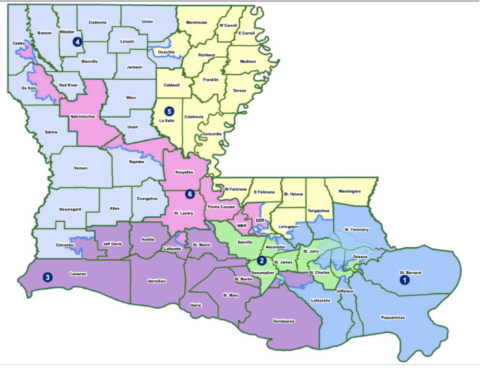Sebastian Wang discusses the stabbing attacks in Southport, Merseyside last year:
On the 29th July 2024, a man went on a stabbing spree in Southport, Merseyside, killing three children and injuring ten others. The attacker, Axel Muganwa Rudakubana, the son of Rwandan immigrants, was arrested at the scene. By all accounts, the attack was shocking not only in its savagery, but in its attendant circumstances. Witnesses report that Mr Rudakubana shouted slogans as he killed that suggested he was an Islamic terrorist. Almost at once, social media was filled with questions and with speculation. Also, protests began in several northern cities – Manchester, Leeds, and Bradford, for example – where demonstrators blamed the Government and the ruling class for immigration policies that had made the killings both possible and likely.
Instead of considering these protests and promising to address the causes of the crime, the British Government and the legacy media focussed on managing the narrative and silencing comment on the immigration policies that had allowed Mr Rudakubana’s family into the country. Keir Starmer, the new Prime Minister, seemed more worried about potential “violence against Muslims” than the actual brutality of Mr Rudakubana’s attack on English people. “For the Muslim community I will take every step possible to keep you safe,” he said in his first public statement on the killings. On the protests he added: “It is not protesting, it is not legitimate, it is crime. We will put a stop to it“. His focus was not on the victims, but on ensuring that no one questioned the system that had allowed this to happen.
In the days after the attack, several men were arrested for spreading what the government called “misinformation” online. Their crime? Posting details about Mr Rudakubana’s background and motivations — details that turned out to be broadly correct. Despite being right, these men were prosecuted and imprisoned under Britain’s hate speech laws. The most recently convicted, Andrew McIntyre, was sentenced earlier this month to seven and a half years in prison for postings on social media. Peter Lynch, a man of 61, was sent to prison last August for two years and eight months for the crime of shouting “scum” and “child killers” at the police. Last October, he hanged himself in prison. I am told he was seriously “mistreated” in prison. British prisons for many years have been overcrowded. Room was found for these prisoners of conscience after the Government began releasing violent criminals.
The injustice of this is glaring. These men were punished not because they lied, but because they spoke approximate truths the government wanted to suppress. Their imprisonment sends a clear message: in modern Britain, it’s better to be wrong on the side of the Government than right and against it.
A Carefully Managed Narrative
The media played its part in the cover up. At first, Mr Rudakubana was described, without name, as “originally from Cardiff“. It took days before we were told he was a child of asylum seekers from Rwanda. Even then, the coverage was carefully balanced by a picture of him as a respectable schoolboy – not at the beast in human form shown by more recent photographs.
Only much later, when the story had faded from the headlines, did the real facts emerge. Mr Rudakubana was not just a troubled individual. His phone contained materials linked to terrorism and genocide, and his actions appeared to have an ideological motivation. Yet by the time these details came out, they barely caused a ripple. The public had been moved on to the next distraction.
It’s hard not to assume that the British media was fully in on gaslighting the public about the accused murderer, when you compare the photo that almost universally was used in the time before the trial and a more recent image:
Say what you like about Axel Rudakubana, the slaughterer of three English girls under ten years old, but — unlike the British Prime Minister, the Home Secretary, the Liverpool Police and most of the court eunuchs in the UK media — he appears to be an honest man:
It’s a good thing those children are dead … I am so glad … I am so happy.
He has always been entirely upfront about such things, telephoning Britain’s so-called “Childline” and asking them:
What should I do if I want to kill somebody?
Judging from his many interactions with “the authorities” (including with the laughably misnamed “Prevent” programme), the British state’s response boiled down to: Go right ahead!
It seems likely that the perpetrator of Wednesday’s Diversity Stabbing of the Day — the Afghan “asylum seeker” who killed a two-year-old boy and seriously wounded other infants in the Bavarian town of Aschaffenburg — is also “so happy”. Like Mr Rudakubana, the “asylum seeker” deliberately targeted a gathering of the very young — in this case, a kindergarten group playing in a municipal park. Like Mr Rudakubana, the “asylum seeker” did not just deliver sufficient stab wounds to kill: he plunged his knife into each target dozens and dozens of times. Like Mr Rudakubana, the “asylum seeker” was well known to the authorities: he had been detained for “violence” at least thrice.
Did these guys also enjoy it? From our pal Leilani Dowding:
For the benefit of American readers, being stabbed in Asda, Argus and Sainsbury’s is like being stabbed in Kroger, Costco and Wegman’s. As you may recall, a DC jury awarded climate mullah Michael E Mann a million bucks because someone unknown gave him a mean look in Wegman’s supermarket. No one stabbed in a UK supermarket will get a seven-figure sum: it’s increasingly a routine feature of daily life — per Sir Sadiq Khan, part of what it means to live in a great world city.
Sir Keir Stürmer and every outpost of the corrupt British state have lied to the public about every aspect of the Southport mass murder since the very first statements by the Liverpool chief constable passing off the killer as a “Cardiff man”. Her officers knew within hours that the Welsh boyo who loved male-voice choirs was, back in the real world, an observant Muslim in possession of the Al-Qaeda handbook and enough ricin to kill twelve thousand of his fellow Welshmen. But they did not disclose this information for months — not until freeborn Britons minded to disagree with Keir Stürmer’s Official Lies by suggesting that this seemed pretty obviously merely the umpteenth case of Islamostabbing had been rounded up, fast-tracked through Keir’s kangaroo courts, gaoled for longer than Muslim child rapists, and in at least one case driven to his death. Does Sir Keir feel bad about the late Peter Lynch? Or does he take the same relaxed attitude to his victims as Axel Rudakubana?
It’s a good thing that that far-right extremist is dead … I am so glad … I am so happy.
Even now, six months on, the organs of the state are still lying — although, with all the previous lies being no longer operative, Stürmer & Co have had the wit to introduce a few new ones. For example:
‘A total disgrace’ that Southport killer could buy a knife on Amazon aged 17, says Cooper
That would be Yvette Cooper, the Home Secretary — which is the equivalent of what Continental governments usually call the Minister of the Interior, because that’s where the knives penetrate.


















